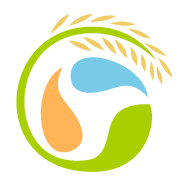The PLC is the main and first priority of PIM. The center farm is located in Chin Kwin village, Gwa-Thandwe highway, Kyinetali, Gwa township, Rakhine State. The farm location is easy to access and it has diverse landscapes. The area of PLC is 8.7 acres and the permaculture design has been being installed since 2020 July. However, the progress of the farm is slower than expected due to resource limitation, Covid pandemic and the coup.

The farm location is very easy to access and it has diverse landscapes.
The main objective of the center’s Permaculture Demonstration Farm is to be installed all the possible applications of permaculture techniques base on permaculture ethics and principles to become practical field for young farmers and demonstrate to the farmers, visitors and learners. The PLC is attempting to become a learning platform for those who are interested in permaculture farm design, sustainable farming practices, regenerative agriculture and nature conservation and local resilience.
New Generation Farmers -NGF
The progress and development of Myanmar are directly linked to the advancement of agriculture sector. Urgently we need transition towards more sustainable and resilient farming practices. With the natural environment collapsing, soil degrading, water scarcity, deforestation, and loss of biodiversity, our farming practices must change to embrace regenerative and sustainable approaches. At Permaculture Institute Myanmar, we firmly believe that empowering young individuals to actively engaged in agriculture sector is essential in transition towards more sustainable farming practices, food security, local community resilience and economic growth.
Education holds the key to unlocking this dream, we must empower our youths, installing them a love for farming, a lifelong commitment to caring nature and environment. Through empowering young people from farming community and for those who want to continue his career in sustainable farming, we can ensure the well-being of our rural community and both food security and food safety, promoting local livelihoods, conserve soil, forest and water sources through this sustainable farming and living approaches and progress of local economic resilience.
We strongly believe that youths as agents of change for these below reasons:
- Young people bring fresh idea, creativity, and innovative to the agriculture sector.
- Engaging youths in agriculture ensure a sustainable supply of notorious food to meet the local community and provide surplus food to other areas.
- Today’s youths are digital natives, well-versed in technology and its potential applications.
- Youths are more aware of climate change challenges and the needs for sustainable practices.
- They can spearhead climate smart practices, conservation strategies and adopt to changing weather patterns and promoting resilient agriculture systems.
- By investing in youth farming training entrepreneurship program, we can reduce unemployment rates and promote rural development.
- Supporting youth-led startups can stimulate economic growth, enhance rural livelihood and contribute poverty reduction.
Permaculture Demostration Farm -PDF
Permaculture Demostration Farm is a integral part of Permaculture Learning Center since we established in 2019. The main purpose of PLC’s Permaculture Demonstration Farm is to be installed all the possible applications of permaculture techniques base on its ethics and principles and create the practical learning field for young farmers and demonstrate to the farmers, visitors and learners.
Farm Research and Experimenting-FRE
The results of farm research and experimenting (PLC) will be shared with farmers through the PIM network via PIM publications and social media platforms. This dissemination strategy aims to reach a wide audience of farmers and enable them to benefit from the knowledge and insights generated through the research and experimentation conducted at PLC.
The PIM network is a collaborative platform that facilitates the exchange of information and experiences among farmers, researchers, and other stakeholders. It promotes participatory approaches to knowledge sharing and decision-making in sustainable agriculture practices. Through this network, the farm research and experimentation results from PLC can be effectively communicated to farmers who can then implement these findings on their own farms.
The PIM publications serve as a formal channel for sharing research outcomes, case studies, success stories, and best practices. These publications are typically designed to be accessible and user-friendly, ensuring that the information reaches a diverse range of farmers. They may include articles, guides, manuals, fact sheets, and research summaries, providing practical insights and recommendations that farmers can easily apply on their farms.
In addition to PIM publications, social media platforms play a vital role in disseminating information to a broader audience. By leveraging social media channels such as Facebook and Linked In, the farm research and experimenting results can be shared in various formats, including text, images, videos, and infographics. This allows for engaging and interactive content that can quickly reach farmers and other interested individuals, fostering knowledge exchange, discussion, and learning.
By utilizing both PIM publications and social media, the aim is to ensure that the valuable research and experimentation results from FRE of Permaculture Learning Center are effectively communicated, reaching a wide network of farmers. This approach helps bridge the gap between research and practice, empowering farmers with evidence-based insights and innovative solutions that can contribute to the advancement of sustainable farming practices.
